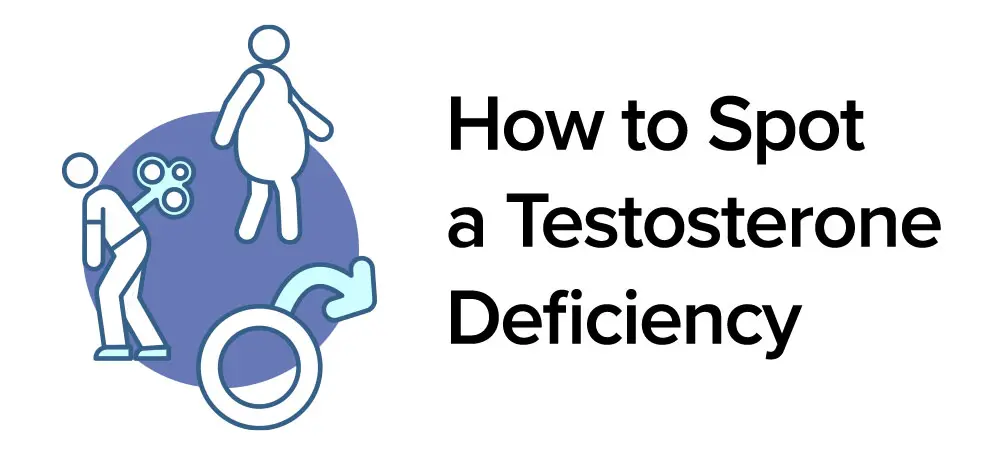When addressing a testosterone deficiency, many people struggle to get to the root of the issue. Given that low T comes with so many possible causes, it can be difficult to determine what the culprit is. Some men’s testosterone levels begin to decline as they grow older, which is a natural part of the aging process. Meanwhile, others have early-onset low T, which affects younger men and occurs for a variety of reasons.
If your low testosterone isn’t a result of aging, there may be a host of other causes behind it. Understanding the potential causes can help you decide whether hormone replacement therapy in Boston is the right choice for your needs. Whether you have an injury or an underlying medical condition to blame, it’s crucial to be aware of what may be contributing to your hormone deficiency.
Below are some of the most common causes of low testosterone levels in men.
Testicular Injury
Another common cause of low testosterone is testicular injury. This type of injury frequently takes place during contact sports, such as football. Because the testes are particularly vulnerable to injury during these athletic activities, it’s crucial for men to be cautious about keeping their testicles protected while playing any type of contact sport.
Testicular trauma is characterized by an interrupted blood supply to the testes. Symptoms of injury include severe pain in the scrotum, acute discomfort in the lower abdomen, nausea or vomiting and swelling or bruising in the scrotum. If any of these symptoms appear, it’s crucial to seek medical treatment as soon as possible.
Injury to the testes doesn’t always result in serious damage. However, when harm does occur, it may lead to reduced testosterone levels over time. It’s important not to ignore any warning signs that you come across and to have them treated properly so you can prevent the issue from getting worse.
Obesity
With over 40 percent of Americans considered obese, this is a significant contributing factor to low testosterone. Obesity is a serious health condition that raises the risk of various diseases, including type 2 diabetes, heart disease, stroke and certain types of cancer. It can also play a role in the development of a testosterone deficiency.
There are two main reasons why obesity negatively impacts hormone levels. One of the key reasons involves body mass index (BMI). Studies have shown that a higher BMI is typically associated with lower levels of testosterone in men. Obesity, which is defined as having a BMI of 30 or above, is strongly linked to lower hormone levels than normal. This can lead to a testosterone deficiency in many situations.
The relationship between obesity and low T is also due to reduced levels of sex hormone-binding globulin (SHBG). The role of SHBG is to regulate the amount of testosterone that your body tissues can use. If your weight is higher than that of a healthy man, this may adversely affect your SHBG levels, which in turn reduces the amount of testosterone produced in your body.
Hypogonadism
Hypogonadism is a condition in which a man’s testes do not produce adequate testosterone. Some males are born with hypogonadism, while others develop it later in life as a result of numerous factors. The most common causes of hypogonadism are injury or infection of the testes.
The effects of hypogonadism vary widely based on the specific cause of the condition. The age at which you develop hypogonadism also plays a key role in the symptoms you have. Examples of potential symptoms include low sperm count, erectile dysfunction, difficulty sleeping, reduced muscle mass, lethargy and a depressed mood.
It’s worth noting that you may experience any of these symptoms even if you don’t have hypogonadism. A doctor visit can help you determine whether this medical condition is the reason for your low testosterone levels. Your doctor can also discuss potential treatment options with you, such as hormone replacement therapy, which has led to positive results for many men.
Alcohol Abuse
For some men, casual alcohol use becomes more frequent and intense as time goes on. This dangerous habit can put you at risk of alcohol addiction or abuse. If you often drink excessively and find yourself unable to cut back despite the consequences, you might be struggling with alcohol abuse.
There are numerous effects of excessive drinking that can impact both your mental and physical well-being. Some of these include sleep disturbances, a weakened immune system, heart and liver problems, digestive troubles and a heightened risk of mental illness. According to research, alcohol abuse can even shrink your hippocampus, which is the region of your brain that controls memory and learning.
The impact of alcohol misuse isn’t limited to the effects listed above. Not only does excessive drinking make you more likely to experience low testosterone levels, but it may also raise your chances of erectile dysfunction. This is because alcohol abuse causes damage to the cells in your testes, which are responsible for producing testosterone.
Poor Sleeping Habits
Sleep is essential to a wide range of functions throughout the body. If you want to feel your best on a daily basis, it’s crucial to make it a priority to get a good night’s sleep every day. Some of the most meaningful benefits of sleep include a stronger immune system, enhanced heart health, lower levels of stress, a sharper focus and memory, reduced inflammation and a healthier mood.
Poor sleeping habits may also wreak havoc on your hormones. Studies have demonstrated that a lack of proper sleep can disrupt your hormone levels. In many cases, this disruption is severe, and a dramatic decline in testosterone levels may take place as a result. You may begin to experience some of the symptoms of a testosterone deficiency if your sleep habits continue to persist.
In addition, there are a number of sleep disorders that can interrupt your body’s testosterone production. Obstructive sleep apnea (OSA), for example, is characterized by a shortened REM cycle and frequent awakenings throughout the night. This leads to poor sleep quality overall, creating unproductive conditions for your body to create testosterone efficiently.
Metabolic Disorders
Not all of the causes of low testosterone involve poor lifestyle habits. Sometimes, the root of the problem is an underlying medical condition. Metabolic disorders, for example, can significantly alter a man’s hormone levels. The specific effects that occur depend on the type of disorder and how it interacts with testosterone levels in the body.
One well-known example of a metabolic disorder is hemochromatosis. This is a condition characterized by an excess of iron in the body. A diagnosis of hemochromatosis may raise the risk of certain diseases, such as heart disease, diabetes and liver disease. In addition, this metabolic disorder can prevent the male sex hormones from operating properly, leading to a testosterone deficiency.
Diabetes is another disease that can cause a metabolic disorder to develop. Type 1 diabetes refers to a condition in which your body does not produce insulin at all. Type 2 diabetes, which is the more common type, describes a condition in which your body has difficulty producing insulin. Because low testosterone is linked to insulin resistance, men with diabetes may be more susceptible to a testosterone deficiency.
Certain Medications
If you take any type of medication, it’s important to be wary of the side effects. Certain medicines may interfere with your hormone levels and potentially lead to a testosterone deficiency. Examples of commonly used medications that may reduce your testosterone levels include the following:
- Ketoconazole: This drug is normally taken to treat fungi-related infections, such as dandruff, yeast infection and athlete’s foot. Brand names include Extina, Nizoral and Ketoderm.
- Spironolactone: Spironolactone is often prescribed as a form of treatment for heart failure or high blood pressure. This drug is better known as Aldactone.
- Cimetidine: This medication is a common remedy for gastroesophageal reflux disease (GERD) and ulcers. It’s also known as an over-the-counter drug that goes by the name of Tagamet.
- Antidepressants: Some antidepressants might play a role in low levels of testosterone. If you’re concerned about the antidepressants you’re taking, be sure to talk to your doctor about your symptoms.
No matter what type of medication you’re taking, always be sure to review the side effects first and discuss your concerns with your doctor. This helps you avoid any unwanted consequences from your medicine.
Pituitary Dysfunction
The pituitary gland is a pea-sized gland at the base of your brain that is responsible for a wide range of processes throughout your body. Its most important functions are regulating blood pressure and blood sugar levels, maintaining healthy muscles, managing fat distribution, controlling metabolism, promoting sperm growth and stimulating testosterone production.
When the pituitary gland does not function properly, a man’s sperm count or testosterone levels may begin to decrease. The most common cause of pituitary dysfunction is a pituitary tumor, which causes damage by compressing the gland. The tumor then increases in size, causing it to secrete more hormones than usual. The result is often low levels of testosterone.
Hypopituitarism is one of the most well-known pituitary disorders. Hypopituitarism refers to a condition in which the pituitary gland is underactive, leading to a deficiency of pituitary hormones. In women, this condition may decrease egg production and reduce estrogen levels. Men, on the other hand, may experience a reduced sperm count and lower levels of testosterone.
Chemotherapy
Low testosterone is one of the most common side effects reported by men who undergo chemotherapy. This is due to the way chemotherapy drugs interact with the hormones in your body. In some cases, radiation therapy may damage the nerves located in your pelvic area or restrict the flow of blood to your penis. These effects may contribute to lower levels of testosterone.
The severity of your symptoms is largely determined by the amount of radiation you receive and the part of your body that is being treated. Generally speaking, the more radiation you receive over a greater area of your body, the more likely you’ll be to experience hormone-related side effects. Other possible sexual effects in men include erectile dysfunction and dry orgasm.
For some men, these side effects may subside following chemotherapy. However, this isn’t the case for all cancer patients. If you’re still experiencing the symptoms of low testosterone after completing radiation treatment, it may be time to consider hormone replacement therapy to rebalance your testosterone levels.
Live a Better Life by Improving Your Hormone Health
Rebalancing your testosterone levels isn’t just about enhancing your sexual health. When your hormones are properly balanced, you can enjoy a host of other positive effects in virtually every area of your overall health. From higher quality sleep to a better mood, there’s no limit to what hormone replacement therapy can do for you.
If you’re looking for a trusted leader in men’s hormone replacement therapy, Boston Vitality can provide you with the reputable care you need. It’s our goal to optimize a man’s hormones to combat the unwanted effects of aging on male health and well-being. If you’re interested in learning more about what we do, don’t hesitate to reach out to us today.


